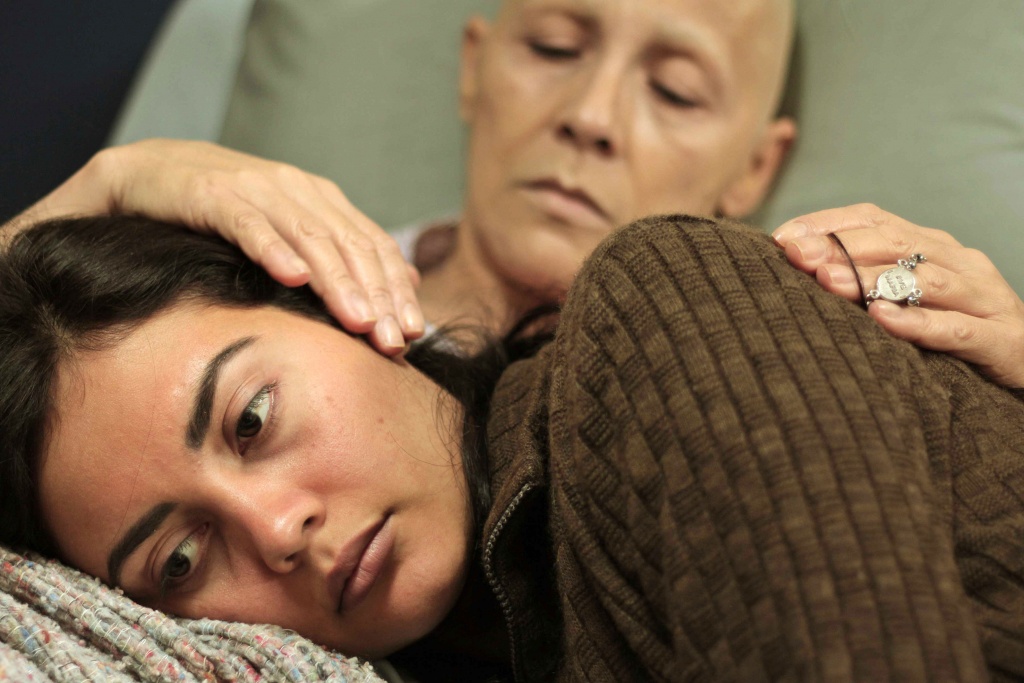With dozens of features, documentaries and shorts, as well as panels and parties to celebrate Latinx cinema and culture, the Philadelphia Latino Film Festival is also LGBTQIA-plus-inclusive.
Three films with LGBTQ themes and characters are being screened at the festival, hosted at University of the Arts through Sunday.
“José” is a poignant and erotic drama about a poor, gay teenager (Enrique Salanic) eking out a life with his mother (Ana Cecilia Mota) in Guatemala City. When José is not working as a food runner at a restaurant, he meets men on the sly for sex.
He soon develops a deep intimacy with Luis (Manolo Herrera), a construction worker. The scenes of the men in bed are tender and loving, as is the moment when the two embrace while riding a motorcycle.
“José” generates drama when the title character must choose whether to stay with his mother, for whom he cares, or follow his heart and be with Luis.
The film, directed by Li Cheng in an almost-documentary style, is achingly beautiful. Audiences feel every emotion as the lens centers on José’s world, observing his routines. Cheng also captures the grittiness of Guatemala City, the sweat of the men’s bodies and the palpable sense of despair, as José must make his heartbreaking decision.
A rich, involving film, “José” is not to be missed.
Another realistic drama is the Venezuelan import “Yo Imposible” (“Being Impossible”).
The sophomore feature by cowriter and director Patricia Ortega opens with Ariel (Lucía Bedoya) losing her virginity. It’s a difficult scene, not just because of the discomfort Ariel experiences, but also because of the oblique, fragmented way Ortega films it.
As the story progresses, viewers come to learn more about Ariel. She is employee of the month in the factory where she works sewing garments, and her mother (María Elena Duque) is suffering from a terminal illness in the hospital.
The interactions between mother and daughter are mostly tender, but when Ariel says she is having belly pain, her mother is adamant that she only visit Dr. Clemencia. The doctor explains that Ariel has vaginal stenosis and gives her a device to treat the issue. However, Ariel has more pain and bleeding using the product. She eventually learns that she was born intersex and had a series of corrective surgeries.
In addition to her physical pain, Ariel’s emotional situation is complicated by the arrival of a new woman at work (Belkis Avilladares). Ariel must train her, and a rumor circulates that the two women are lovers. They eventually do become more intimate, particularly after an episode of bullying occurs at the factory.
“Yo Imposible” is a slow-burn film, but it takes an interesting approach to addressing the issue of being intersex. Video testimonials, peppered throughout the film, testify to the shame and resilience of other intersex people (and their relatives). These scenes put Ariel’s story in bold relief and drive home the point that what people do with their genitals should be their own decision.
“Yo Imposible” is full of symbols and rituals that play with gender roles — from sewing to farming — and Ariel comes to exert agency in many of her interactions. Ortega’s artsy drama proves quite provocative.
Closing out the festival is a fabulous documentary, “Cartas de Amor Para Una Ícona” (“Letters of Love for an Icon”). This hourlong film features rabid fans of famed Puerto Rican singer Lucecita Benítez recounting their infectious affection for the performer with the powerful voice.
One fan, Roberto, has an extraordinary collection of Benítez’s clothes; another, a lesbian, describes how the singer inspired her to come out and “be who I am.” A fan named Gilo is a drag performer who started to portray Benítez in his act.
The film, nimbly directed by Gisela Rosario Ramos, features scrapbooks and clips of Benítez performing on “The Ed Sullivan Show” to exhibit her popularity in her heyday, while also discussing the reasons her music was banned in her home country. (She started her own label as a result.)
“Cartas de Amor” addresses Benítez’s progressive ideologies and political views that appealed to her fanbase. She was true to herself, and her bold fashion sense — she sported an afro and pants in an era when such a look was forbidden — was ingratiating.
Ramos’ film may have more impact for viewers familiar with Benítez’s recordings, but it features enough of her music to generate a whole new legion of fans.
Showtimes:
• “José,” 2:15 p.m. Saturday
• “Yo Imposible,” 4 p.m. Saturday
• “Cartas de Amor Para Una Ícona,” 8 p.m. Sunday
Philadelphia Latino Film Festival is held at Caplan Center for the Performing Arts at University of the Arts, 211 South Broad Street. For full schedule, tickets and more information, visit phlaff.org.
